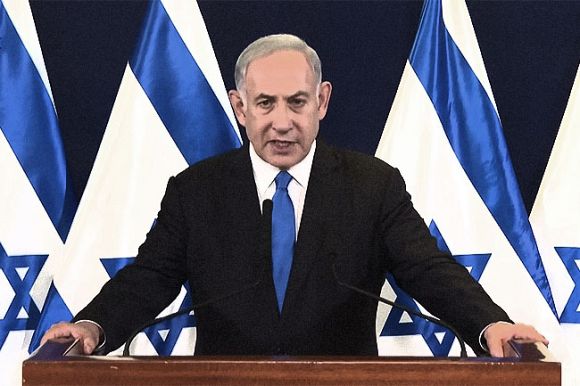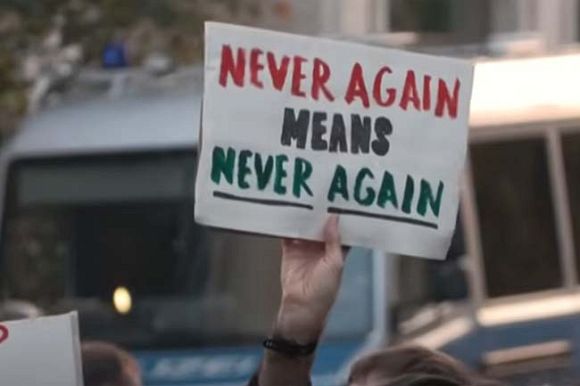As world leaders fail to persuade Israel to cease the bombing of civilians, it's up to the international community to put pressure on its government to stop the slaughter. Christopher Timbs reports.
IN 1954, Dag Hammarskjöld, one of the founders of the United Nations, stated the United Nations was “not created in order to bring us to heaven, but to save humanity from hell”. It has manifestly failed to do this.
Al Jazeera has reported that the death toll of Palestinian civilians in Gaza has reached around 24,000 since Israel began its indiscriminate bombing campaign in response to the Hamas attacks of 7 October, with over 8,000 children reported to have been killed. The humanitarian crisis is being exacerbated as essential infrastructure such as hospitals has been flattened and life-saving medical aid and food are being largely blocked from entering the Gaza Strip.
Hunger and flood-based diseased places are growing into added risks of more death on civilians, with 1.9 million people estimated to be internally displaced and nowhere safe to go.
Thanks to the bravery of journalists on the ground in Gaza such as Motaz Azaiza, Bisan Owda, Plestia Alaqad and many others, at risk of being bombed themselves, millions of people have witnessed the destruction and death of Palestinians at the hands of the Israeli Defence Forces (IDF). These journalists are getting footage out on social media accounts, reaching massive audiences where mainstream media organisations cannot provide the same access.
I have seen footage of children without heads, limbs half blown off, bodies half-covered under residential buildings that have been destroyed and heartbroken people rushing their dead family members to hospitals that are dwindling on resources and barely operating.
We look back on the events of history with disgust, such as the Holocaust and the Rwandan genocide. We say, “We would never let that happen in our lifetime”. But it is happening now. We must learn the lessons from history and accept our collective responsibility to protect innocent lives.
States do have a right to defend themselves. They do not have a right to enact collective punishment against an entire people. State sovereignty is a fundamental right in global politics. However, our value for state sovereignty must not come at the expense of our value for innocent human life.
Palestinian children and civilians have a right to life and safety. Israeli children and civilians have a right to life and safety. All children and civilians have a right to life and safety.
The fact that these statements are being treated as conditional across society – by governments in particular – is a tragic lack of humanity in the world of 2023. All life is inherently equal. Yet the actions, or lack thereof, from our global leaders have sent a clear message that this is not true. To not call for a ceasefire, to not speak out on textbook war crimes and to not call out genocide is a shocking failure of our international leaders to uphold the human rights of children and civilians.
Contrast this with the actions of the general public around the world, with people marching in their hundreds of thousands across major cities, calling out genocide and demanding an immediate ceasefire. There is a blatant divide between the people's will and their representatives' policy positions. Leaders have begun to feel the pressure of this social action. Australia shifted from “Israel should follow the rules of war and protect civilians” to voting for a ceasefire at the United Nations.
Brokering a lasting peace treaty between Israel and Palestine, or securing and implementing coexistence between these two sets of peoples, is a complex and long-term task. Preventing the death of children and civilians is not.
The United Nations General Assembly has overwhelmingly voted for a ceasefire in Gaza. However, this vote is largely symbolic. At the UN Security Council, where votes can trigger stronger action such as military intervention force, the United States Government has repeatedly used its veto power to prevent any useful action.
However, global leaders are not entirely hamstrung by the U.S. When UN resolutions don’t lead to impact, governments can pause diplomatic ties with the offending state. Some nations have taken this step, such as South Africa.
Still no change? Economic sanctions can be imposed.
Take South Africa for an example again. The broader international community enforced embargoes on South African investments and exports in the 1970s and 1980s on the apartheid government, which helped dismantle the regime by strengthening domestic public pressure.
The actions are available for our leaders to put more pressure on Israel and stop the bombing of civilians. What’s missing right now is the political will. World leaders are currently failing in Gaza. Continued public pressure can change this.
Christopher Timbs is a Sydney-based writer and social worker, currently writing from Luxembourg. He has a Bachelor of Humanitarian and Development Studies and is completing a Master of International Relations.
Related Articles
- Israel’s argument at The Hague: We are incapable of genocide
- Why Israeli digital propaganda doesn't work
- Australian killed in Lebanon: Selected targets; selective morality
- 'Criminal practices': Israel's cruel apartheid against Palestinians
- Israel war a display of hypocrisy and de facto terrorism
 This work is licensed under a Creative Commons Attribution-NonCommercial-NoDerivs 3.0 Australia License
This work is licensed under a Creative Commons Attribution-NonCommercial-NoDerivs 3.0 Australia License
Support independent journalism Subscribe to IA.












